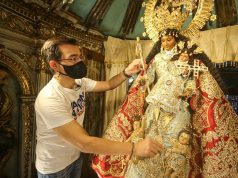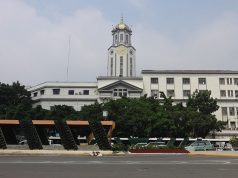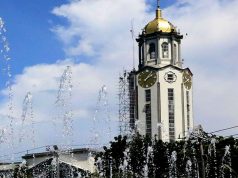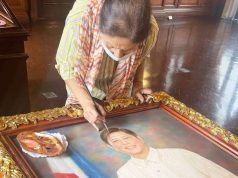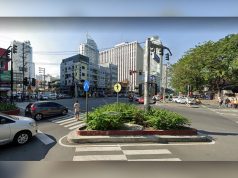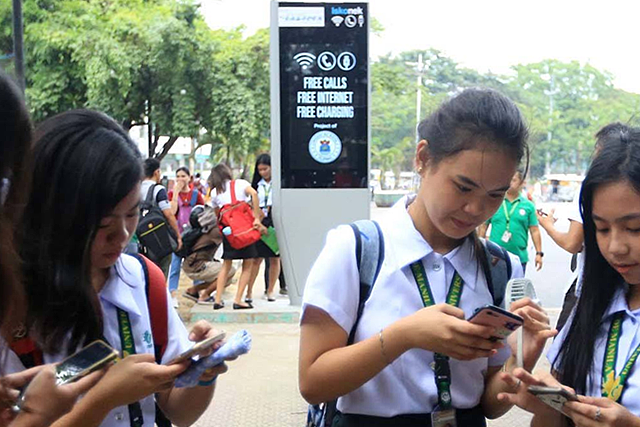
The names of the newly installed wi-fi kiosks in Manila have been changed from “ISKOnek” to “MNL Konek” after some Filipinos recalled Manila Mayor Isko Moreno’s “anti-epal” policy.
The wi-fi kiosks in six areas of the country’s capital aim to provide Manileños with free internet connection, instant charging stations for mobile phones and an accessible phone booth.
The first of its kind was installed three days ago with the cooperation of Eastern Communications.
However, when pictures of it were posted on social media, some Filipinos pointed out that the local chief executive had once again supposedly violated his own directive against politicking.
YorMe: "Bawal ang epal. Tigilan na natin 'yan."
Also YorMe: https://t.co/yzC3S2H9nD
— Emilio (@13thFool) August 14, 2019
A Twitter user even wrote, “In your own words, Yorme (Mayor), ‘You are immortalizing yourself or as if it is your money, that is not your money. Pera ‘yan ng taumbayan.”
'Remove my name & photo from 'Kusina ni Isko''
Remove names of politicos on school properties in Manila, "Bawal ang Epal"
Then came "ISKOnek"
In your own words, Yorme, 'You are immortalizing yourself or as if it is your money, that is not your money. Pera 'yan ng taumbayan. 🙄 pic.twitter.com/pVDW8Hiy2C
— Dan Santos (@DanSantos8) August 16, 2019
By Friday, the kiosks’ names were changed from “ISKOnek” to “MNL (Manila) Konek,” as seen on Moreno’s Twitter account.
Free WiFi, free charging, free landline calls — MNL Konek! 😊 https://t.co/LPsDPWBMzv
— Isko Moreno Domagoso (@IskoMoreno) August 16, 2019
According to Manila Public Information Officer Julius Leonen, “ISKOnek” was the idea of Eastern Communications and not the city government.
“ISKOnek is the choice of Eastern Communications on how to brand the wi-fi kiosk. After receiving suggestions from netizens, we called on the attention of the private company to change it,” he shared.
From “ISKOnek,” it was changed to “MNL Konek” instead.
The incident was the second time Filipinos criticized the local chief executive in terms of project naming, especially since he has an “anti-epal” policy that explicitly prevents politicians’ names and faces from adorning government initiatives.
Last month, Moreno earned flak for having a food truck named “Kusina ni Isko” that featured his and Manila Vice Mayor Honey Lacuña’s faces.
It served free rice porridge to the attendees of a Philippine flag-raising ceremony at the Andres Bonifacio Shrine.
Apparently, it was named by his “friends and supporters who wanted to put the Mayor’s name on the food trucks,” according to the Manila Public Information Office.
"Kusina ni Isko" is not a public project hehe. No public funds were used. These were donated by his friends and supporters, who wanted to put the Mayor's name on the food trucks. 🙂 Nevertheless, we thank them for the food they provided during the flag ceremony. https://t.co/NGAlqJgiFZ
— Manila Public Information Office (@ManilaPIO) July 15, 2019
The food truck’s name was later on changed to “Kusina ng Batang Maynila,” although the letters of his initials can still be spotted upon a closer look.
The ‘anti-epal’ policy
Moreno in July ordered the removal of politicians’ names in schools in a bid to “distance public education from traditional politicking.”
It was one of the first policies he implemented upon assuming the highest public seat in Manila.
The “anti-epal” policy was an execution of his views on government project naming which, according to him, shouldn’t involve politicians’ names and faces.
“Walang epal sa pader ng eskwelahan. Walang epal sa mga basketball court, gymnasium na pinagawa ng mga pulitiko sa loob ng eskwelahan,” Moreno said before.
He reasoned that the funds used in such projects come from taxpayers and not from politicians.
“That is not your money. Pera ‘yan ng taumbayan,” Moreno stressed.
According to him, he would implement such policy in schools, public hospitals and other government-owned facilities to prevent political “immortalization.”





